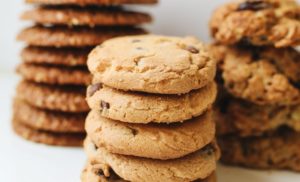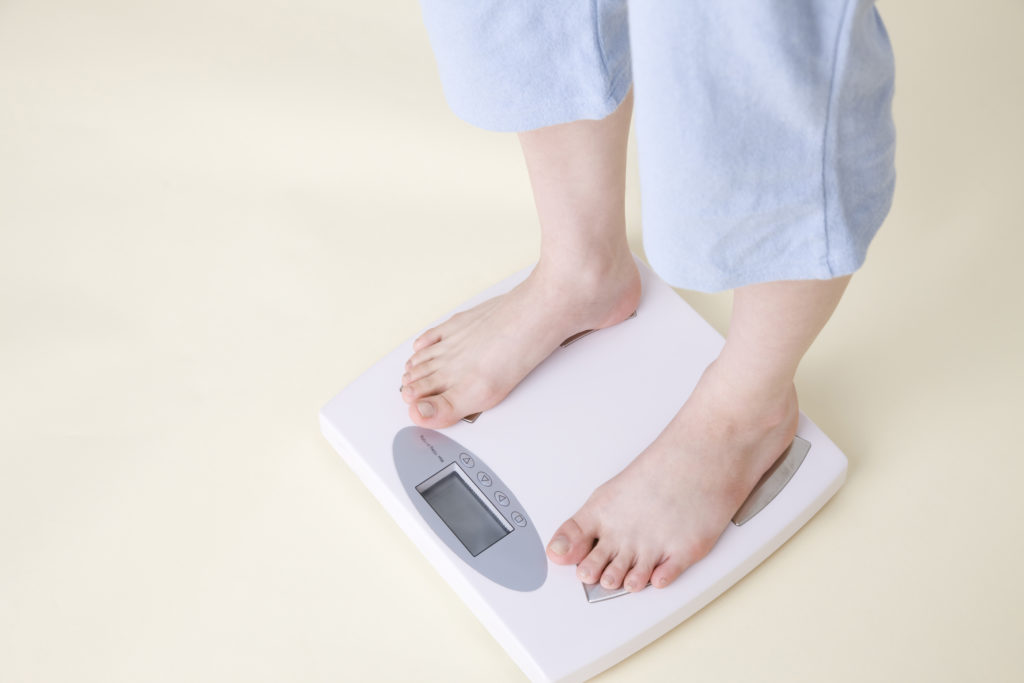 Where Were You?
Where Were You?
At the risk of letting my southern roots show, have you heard the song, “Where Were You,” by Alan Jackson? The lyrics transport listeners back to the moment the Twin Towers fell on September 11, 2001. “Where were you when the world stopped turnin’, that September day?” That day was (and is) so significant in our nation’s history, and shares similar gravity and heartbreak to this time last year. On March 13, 2020, President Trump declared COVID-19 a national emergency. I was out of town, in San Diego, CA and upon hearing the news, I worried if I would be able to fly home safely. My flight was practically empty and nobody wore a mask. The version of “home” I returned to was completely different than the one I left only a week prior, particularly (and perhaps most annoyingly) in regards to its newly-developed toilet paper shortage. Fast forward one, hellaciously long year later, the COVID-19 vaccines are now rolling out, and the case numbers are decreasing. We’re not completely out of the woods yet, but most of us have moved out of the traumatic phase of the pandemic and are currently living with the lingering aftermath and the decisions we made in an attempt to cope.
 Secondary Crisis
Secondary Crisis
Judging by the popularity of our recent blog post, “How to Effectively Identify and Manage Healthcare Related Workplace Stress,” the topic of stress is on the brain. The American Psychological Association (APA) also affirms this with their recent Stress in America poll. In his blog, “Poll: Alcoholism, Weight Gain Seen Among Those Coping With Pandemic,” author Keith A. Reynolds writes, “The American Psychological Association’s latest Stress in America poll indicates that the prolonged stress of the pandemic could be leading to undesired changes in weight, increased drinking, and other negative behaviors among Americans.” (1) He quotes APA’s CEO, Arthur C. Evans Jr., Ph.D. regarding the results of the poll, “This survey reveals a secondary crisis that is likely to have persistent, serious mental and physical health consequences for years to come.” (1) No doubt about it, prolonged stress is wreaking havoc on America. I’d like to start a mini-series for our Thinking Thursday TIPs on identifying several common habits Americans developed in efforts to cope during the pandemic and how they have contributed to prolonged stress.
 The Quarantine-29
The Quarantine-29
According to the same APA study, sixty-one percent of adults surveyed experienced undesired weight changes over the last year due to high-stress levels. Forty-two percent said they gained an average of twenty-nine pounds. Ten percent report they’ve gained more than fifty pounds. (1) According to the experts, these numbers are text-book evidence that Americans are struggling to cope with mental health challenges, probably induced (or enhanced) by the pandemic. Routines were disrupted, gyms were closed, and emotional eating provided temporary relief from the stress. Nicole Lyn Pesce highlighted APA’s findings on the correlation between pandemic stress and weight gain in her article, “‘The Covid 15?’ If Only – This is How Much Weight the Average Person Actually Gained During the Pandemic.” (2) Fifty-four percent reported that they were exercising less during quarantine, and sixty-eight percent admitted that they were snacking more. (2)
 The Science Behind Stress Eating
The Science Behind Stress Eating
It’s important to know that once we’ve chosen to cope with stress in unhealthy ways over time, our bodies develop habits and urges at a mental and chemical level to continue those unhealthy choices. According to a Harvard Mental Health letter, “Why Stress Causes People to Overeat,” under persistent stress, the adrenal glands release the hormone cortisol, which increases appetite and the desire to eat. If an individual’s stress level stays in the “on” position, cortisol levels may stay elevated. Furthermore, stress affects food preferences. According to the Harvard Mental Health Letter, “[P]hysical or emotional distress increases the intake of food high in fat, sugar, or both. High cortisol levels, in combination with high insulin levels, may be responsible. Other research suggests that ghrelin, a ‘hunger hormone,’ may have a role.” (3) Furthermore, Harvard Mental Health points out that increased eating isn’t the only stress-induced habit that leads to weight gain. Increased alcohol consumption, loss of sleep, lack of exercise, and nicotine use can all negatively affect an individual’s weight.
 The Good News
The Good News
Although some people are genetically predisposed to experiencing stress, Dr. Alexis Hanson, DNP, FNP-C notes for Purdue University Global’s article, “Stress Management for Health Care Workers: Real Tips on How to Destress,” stress levels can increase and/or decrease due to circumstances, which means we do have a degree of control over our stress levels. “Learning how to manage stress is based upon each individual’s goals, motivations, and choices… Although a stressor may begin as a situation we feel is out of our control, we have choices on how we respond to that given situation,” says Dr. Hanson. (4) The article provides several great tips on how to respond to stress healthily, but for the sake of today’s blog, I want to highlight those that pertain to weight gain.
 Adopt Healthy Eating and Lifestyle Habits
Adopt Healthy Eating and Lifestyle Habits
Dr. Hanson states, “When it comes to diet, exercise, and healthy eating plans, remember it is not a ‘one-size-fits-all’ solution. It’s important to find an eating plan that fits into your personal lifestyle, with healthy food choices that increase your wellness and energy. In my experience, I’ve found that when someone finds an eating and exercise plan that they enjoy and can stick with long-term, many times they feel happier and healthier, with an increased level of self-awareness, energy, and confidence.” (4) Notice he makes the point of the importance of being able to stick to a plan long-term. There’s an abundance of gimmicky, fad diets out there on how to “lose weight fast,” but I encourage you to remember that simply losing weight isn’t the goal. The goal is to retrain our bodies on the mental and chemical level in regards to responding to stress. This kind of change takes time and intentionality. Chances are if your eating and exercise plan cannot be sustained over a long period of time, you’re not making change at a foundational level.
 Stress-Management Techniques
Stress-Management Techniques
The Mayo Clinic also provides stress management techniques to combat stress-related weight gain in their article, “How Do I Control Stress-Induced Weight Gain?” (5)
- Recognize the warning signs of stress, such as anxiety, irritability, and muscle tension.
- Before eating, ask yourself why you’re eating – are you truly hungry or do you feel stressed or anxious
- If you’re tempted to eat when you’re not hungry, find a distraction
- Don’t skip meals, especially breakfast. If you’re in a hurry, grab a piece of fruit on the way out the door.
- Eat a healthy diet, such as whole grains and a variety of fruits and vegetables. Aim to include most food groups in your meals.
- Identify comfort foods and keep them out of your home or office
- Keep a record of your behavior and eating habits so that you can look for patterns and connections – and then figure out how to overcome them.
- Learn problem-solving skills so that you can anticipate challenges and cope with setbacks.
- Practice relaxation skills, such as yoga, stretching, massage, deep breathing, or meditation.
- Engage in regular physical activity or exercise.
- Get adequate sleep.
- Get encouragement from supportive friends and family.
 Worth the Fight
Worth the Fight
Making these changes isn’t an easy task or something that can be accomplished overnight. Perhaps you’re tired of trying and failing. I encourage you to remember, you’re always one choice away from getting back on your healthy exercise and eating plan. The good news with the high statistics of those struggling with pandemic- or stress-related weight gain is that you’re not alone. Chances are high there are others in your circle of home or work life that are struggling to develop healthy habits in response to stress, too. Making these types of changes with someone else for support and accountability will increase your chances of success. Will power and motivation will come and go, sometimes we just need another person to point us back to the goal. Making efforts to restructure our daily lives to include a lot of little, healthy choices will be the key to overcoming this secondary crisis and becoming a healthier, stronger nation.
Please let us know if you have comments or questions, and subscribe to our Email Updates, so that you can be assured to receive Thinking Thursdays TIPs.
Thank you!
Jerry
Jerry L. Stone
Co-Founder/COO
MedicalGPS, LLC
Resources:
- https://www.medicaleconomics.
com/view/poll-alcoholism- weight-gain-seen-among-those- coping-with-pandemic - https://www.marketwatch.com/
story/the-covid-15-if-only- this-is-how-much-weight-the- average-person-actually- gained-during-the-pandemic- 11615574913 - https://www.health.harvard.
edu/staying-healthy/why- stress-causes-people-to- overeat - https://www.purdueglobal.edu/
blog/nursing/stress- management-health-care- workers/ - https://www.mayoclinic.org/
healthy-lifestyle/stress- management/expert-answers/ stress/faq-20058497


1 thought on “How to Manage Weight Gain Due to Prolonged Elevated Stress Levels”